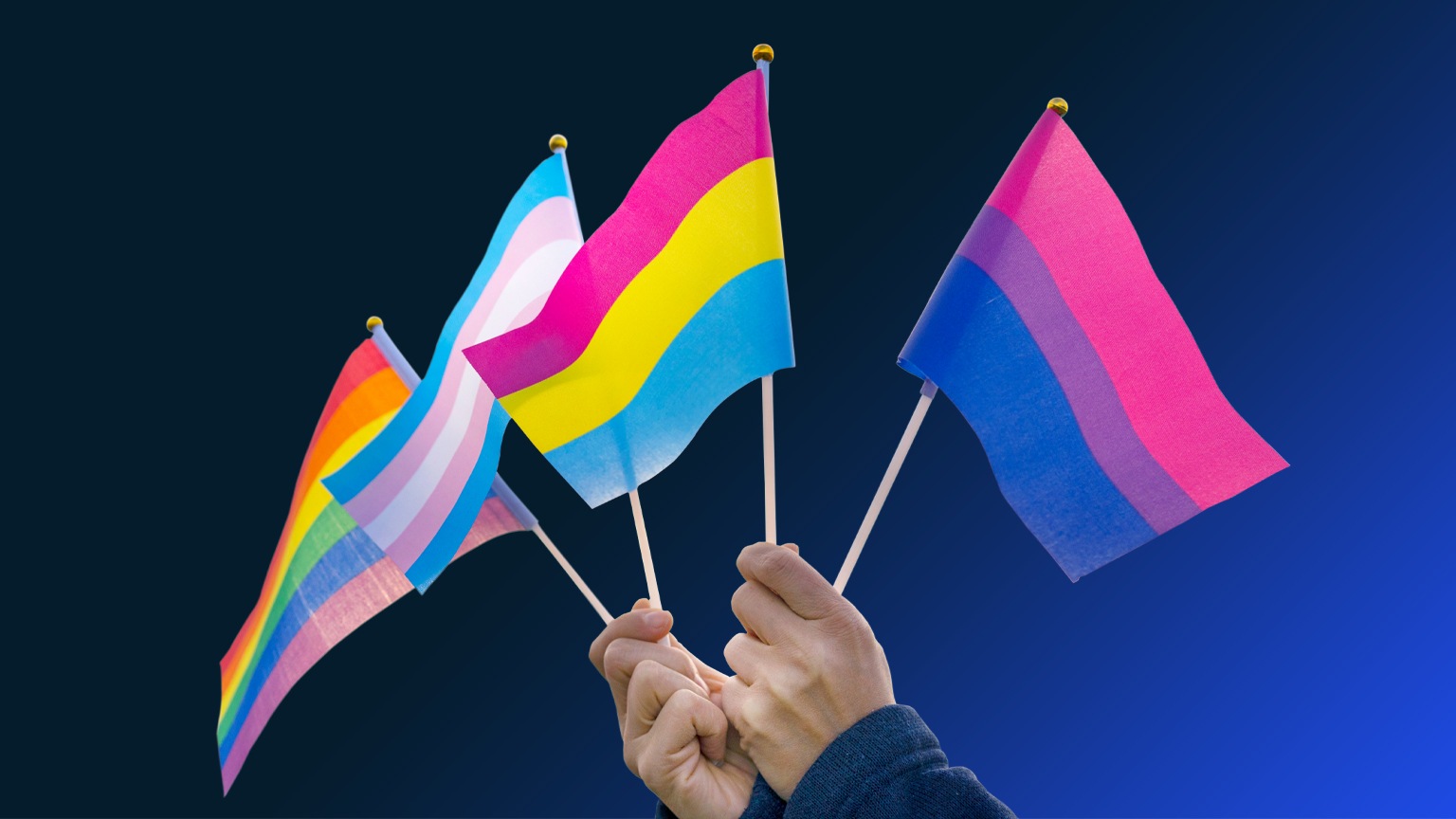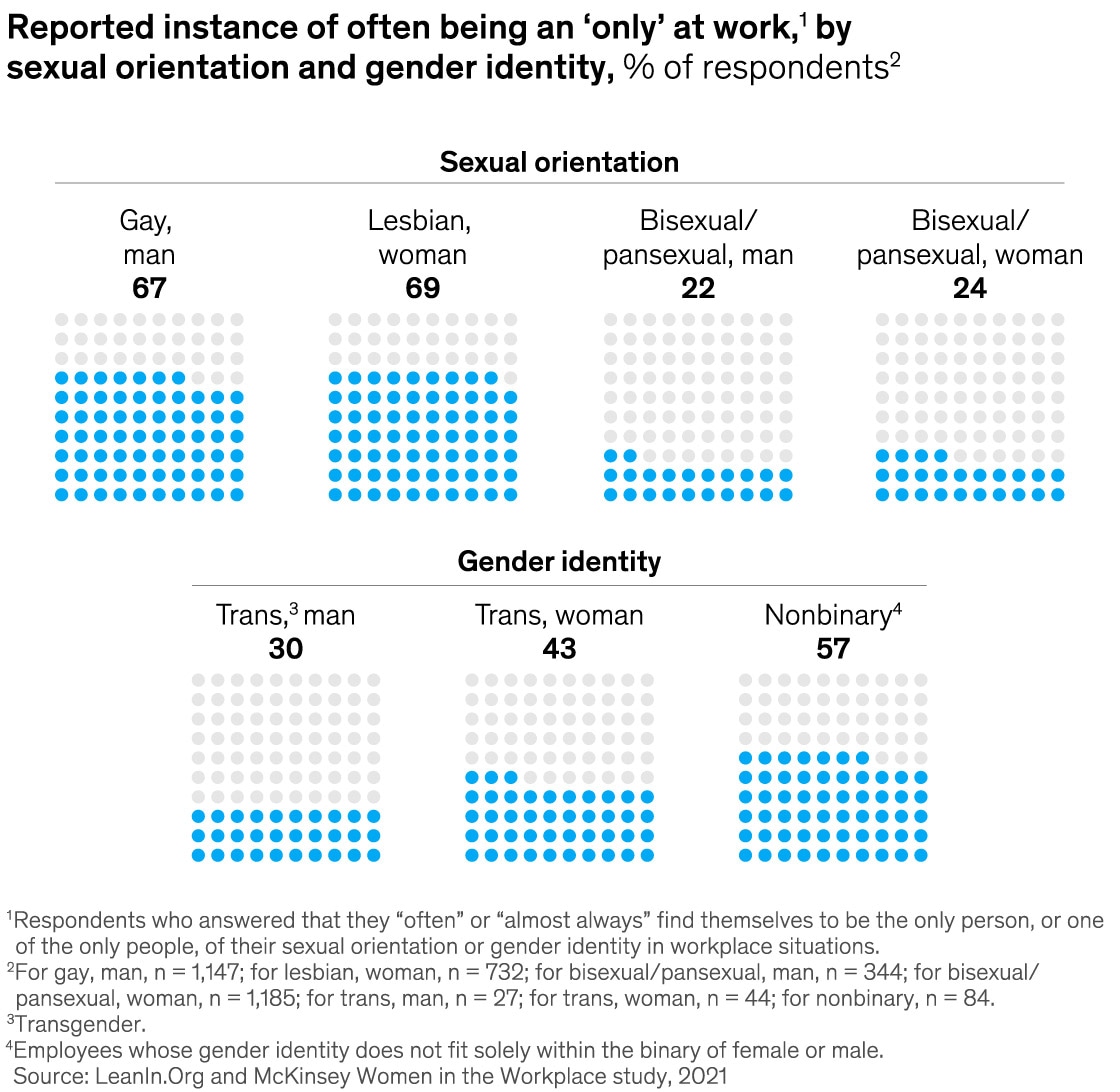| | |
 |
Edited by Justine Jablonska
(she/her/hers)
Editor, New York |
|
|
|
|
|
|
Welcome to Intersection, where we dive into diversity, equity, and inclusion in and for the workplace. In this issue, we talk about why allyship matters, especially for the “onlys” in your organization.
|
|
|
| |
| | |
More organizations in the US are adopting various allyship efforts—such as inclusive-language practices—to advance a culture of inclusion. Nevertheless, LGBTQ+ employees persistently report experiencing microaggressions and feeling isolated at work, McKinsey research shows. Additionally, recent movements across the US to limit the rights of the LGBTQ+ population, and especially those of transgender individuals, highlight that the issues facing the LGBTQ+ community are as pressing as ever. To help organizations understand the people they’re employing—and how to support them—we’ve paired data and insights from the survey responses of more than 4,000 LGBTQ+ individuals across US workplaces. Among the most striking findings: allyship is critical in ensuring that LGBTQ+ employees feel they are included, supported, and not alone.
|
|
|
| |
| |
| | | |
|
Being an 'only' means being the only person like yourself in a given situation, usually because of, but not limited to, your gender, sexual orientation, race, or ethnicity. More than half of gay, lesbian, and nonbinary employees report strong feelings of being an “only” at work. |
|
| |
|
| |
Want to help? You can start by including your pronouns in all introductions and adding them to your videoconference screen and other group communication tools if you feel comfortable doing this, says McKinsey associate Danny Hurvitz, who is part of the author team for this issue’s Spotlight article. “By doing so, you’re providing others with the opportunity to share their pronouns in a safer space,” says Hurvitz. “As a nonbinary colleague who utilizes the gender-neutral pronouns they/them/theirs, I always lead with my pronouns in introductions. More often than not, I’m alone in doing so, which further emphasizes I’m an ‘only’ in the room. By sharing your pronouns, you can help create a more inclusive space for transgender and gender-nonconforming [TGNC] colleagues to feel comfortable sharing theirs—and also inclusively support your colleagues.”
|
|
| |
|
| |
|
This issue’s book recommendation comes from McKinsey associate Danny Hurvitz, who recently finished and recommends Eric Cervini’s The Deviant’s War: The Homosexual vs. the United States of America, a finalist for the 2021 Pulitzer Prize in history. The book details the life and work of Frank Kameny, a pioneer of the queer-rights movement and, as Hurvitz told me, “a major force of believing there’s pride—not shame—in being LGBTQ+.” The book includes recently released FBI reports, firsthand accounts from early activists, and numerous personal documents to tell the story of a rising political movement. Hurvitz notes that the book takes a “fantastically nuanced and critical view of important queer organizations” and is “an important read to better understand queer political history.” |
|
| |
| |
|
|
|
Have you experienced being an “only” in the workplace? What’s something you wish that allies, or potential allies, understood? |
|
|
|
|
| |
| |
|
| |
| | | |
This email contains information about McKinsey's research, insights, services, or events. By opening our emails or clicking on links, you agree to our use of cookies and web tracking technology. For more information on how we use and protect your information, please review our privacy policy. |
|
You received this email because you subscribed to the Intersection newsletter. |
|
|
Copyright © 2022 | McKinsey & Company, 3 World Trade Center, 175 Greenwich Street, New York, NY 10007 |
|
|
|
|
|





